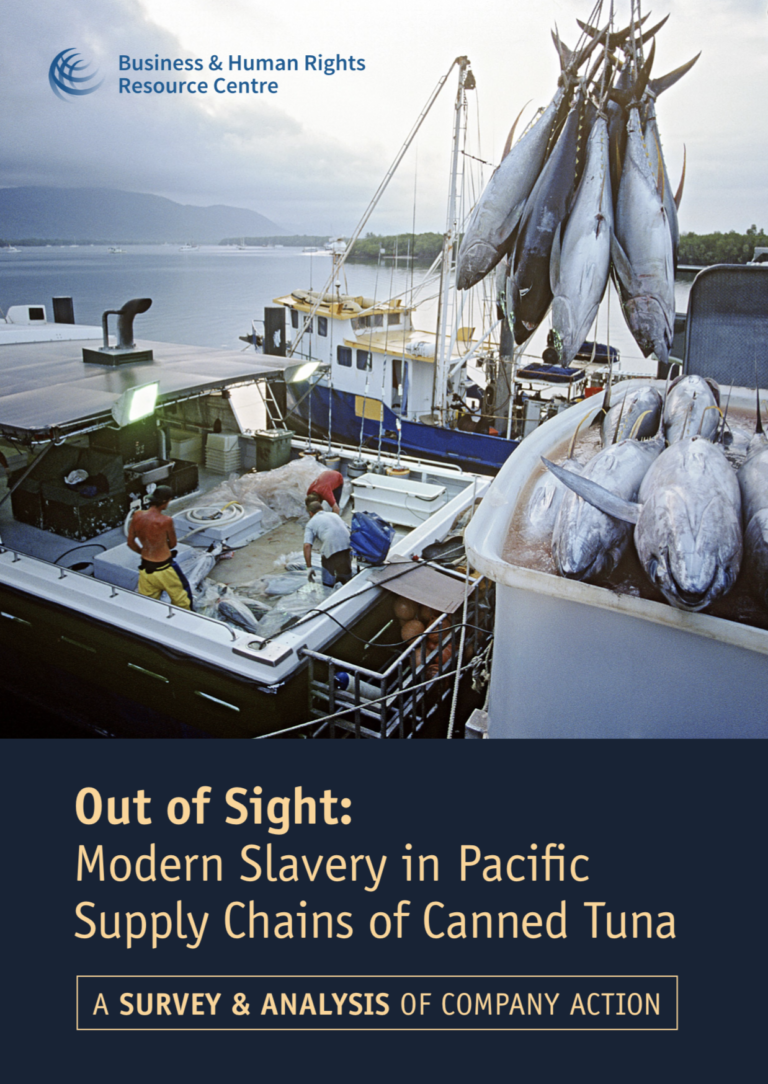Between November 2018 and January 2019, Business & Human Rights Resource Centre invited 35 canned tuna companies and supermarkets – representing 80 of the world’s largest retail canned tuna brands – to answer a survey on their approach to human rights challenges, including modern slavery. They also reviewed publicly-available information on the websites of the 35 survey companies.
Their research reveals a pattern of policy over practice. While two thirds of surveyed companies have adopted corporate human rights policies, there is little or no action to implement them. Without urgent and decisive action, there is a danger these public policies become a fig-leaf for abuse: providing the majority of laggard companies with ‘plausible deniability’ while slavery continues unabated.

